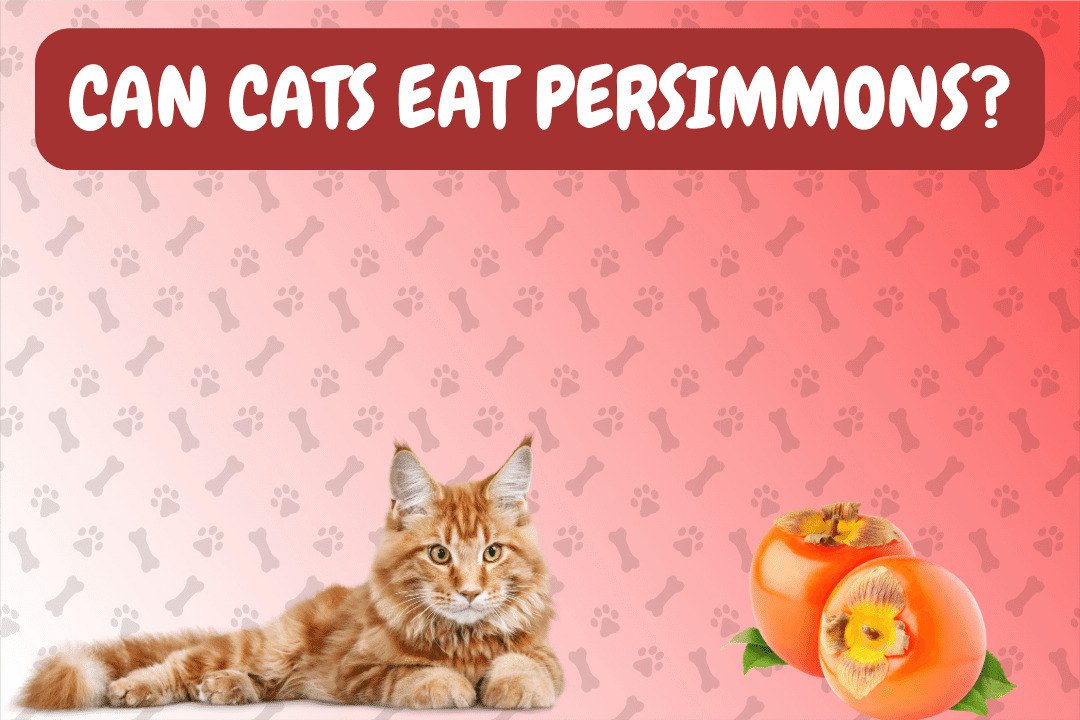No, cats can’t eat persimmons because they can be harmful to their health.
Table of Contents
Introduction
Cats, with their endearing quirks and often finicky food preferences, have unique dietary requirements. It’s not uncommon for cat owners to wonder whether their feline friends can safely indulge in the occasional piece of persimmon. This article will delve into the potential risks associated with question can cats eat persimmons, also will provide an in-depth understanding of why this fruit should be avoided in their diet.
Nutritional Value
Persimmons, enjoyed by humans for their sweet and vibrant taste, pack a nutritional punch. They are rich in vitamins, particularly vitamin A and C, and boast dietary fiber, which is excellent for our health. However, when it comes to cats, it’s vital to grasp that their nutritional needs significantly differ from ours. Cats are obligate carnivores, meaning they primarily require animal-based proteins in their diet. As such, persimmons, although nutritious for us, do not align with a cat’s dietary requirements.
Potential Risks
Feeding persimmons to your cat can give rise to several potential risks. One of the foremost concerns is the presence of tannins in persimmons. These compounds can lead to digestive disturbances in cats, resulting in symptoms such as vomiting and diarrhea. Furthermore, the seeds within persimmons present a serious choking hazard, which can be life-threatening for your feline companion.
How to Serve Safely
To safeguard your cat’s well-being, it’s prudent to entirely refrain from offering persimmons to them. Cats have very specific dietary needs, and persimmons do not cater to those needs. The cornerstone of a cat’s diet should be high-quality cat food that provides the necessary proteins and nutrients, rendering the inclusion of persimmons unnecessary and potentially harmful.
Serving Suggestions
Instead of considering persimmons, you might explore cat-specific treats readily available in pet stores. These treats are purposefully designed to meet the nutritional requirements of cats and have undergone rigorous testing to ensure they are safe for consumption. Opting for these treats provides a much safer and healthier option to reward your cherished feline companion without risking their health.
Special Considerations
Recognize that every cat is unique, and some may have allergies or specific dietary restrictions. It’s judicious to seek advice from your veterinarian before introducing any new food into your cat’s diet to ensure it is safe and suitable for your furry friend.
Expert Opinion
Experts in the field of veterinary medicine and pet care universally discourage the feeding of persimmons to cats. The potential risks to a cat’s digestive health and overall well-being far outweigh any conceivable benefits.
Conclusion
In conclusion, the answer is a resounding no – cats can’t eat persimmons due to the potential risks these fruits pose to their digestive system and general health. Cats thrive on a diet that is primarily composed of high-quality cat food, and introducing persimmons into their diet is unnecessary and could jeopardize their well-being. It is best to err on the side of caution and avoid offering human foods like persimmons to keep your beloved feline friend healthy and content.
FAQ
1. Can I give my cat a small piece of persimmon as a treat?
It is advisable to entirely avoid feeding persimmons to your cat. Instead, opt for cat-specific treats to ensure their safety and well-being.
2. Are there any types of persimmons that are safe for cats?
No, all varieties of persimmons should be avoided in a cat’s diet due to the potential risks they pose.
3. How do I know if my cat has eaten persimmons and is sick?
If you suspect that your cat has consumed persimmons or any other harmful substance, monitor them for symptoms such as gastrointestinal distress, including vomiting or diarrhea. Contact your veterinarian if you notice any unusual symptoms.
4. Can persimmon seeds be toxic to cats?
Persimmon seeds are not known to be toxic to cats; however, they can present a choking hazard.
5. What are some safe treats for cats?
Safe cat treats include commercially available options that are specifically formulated to meet the dietary needs of cats. These treats are designed to be safe for your feline friend.
6. Can cats eat other fruits or vegetables?
Cats can tolerate very small amounts of some fruits and vegetables, but it’s not a substantial part of their diet. It’s wise to consult your vet before introducing new foods to their diet.
7. Are there any human foods that are safe for cats to eat?
While a few human foods can be tolerated by cats in small amounts, it’s always best to consult with a veterinarian before introducing any new foods to their diet.
8. Can a small piece of persimmon harm my cat?
Even a small piece of persimmon can pose risks to your cat’s digestive health, so it’s best to avoid it entirely.
9. Can cats eat any type of fruit safely?
Cats can have very small amounts of some fruits like apples or melons, but it’s not a significant part of their diet, and you should always consult your vet before introducing new foods.
10. What should I do if my cat eats persimmons by mistake?
If you suspect your cat has consumed persimmons or any harmful food, contact your veterinarian immediately for guidance on how to ensure your cat’s safety and well-being.
For more Cats food informations, look on our blog.
Hello! I’m Max Walley, a pet enthusiast who knows a lot about what our animal buddies can munch on and what’s a no-no. With ‘canpeteat.it,’ I’m here to help pet owners make smart food choices. Come with me as we dive into the world of pet nutrition, discovering what keeps our furry pals joyful and in tip-top shape. Let’s explore this adventure together!


